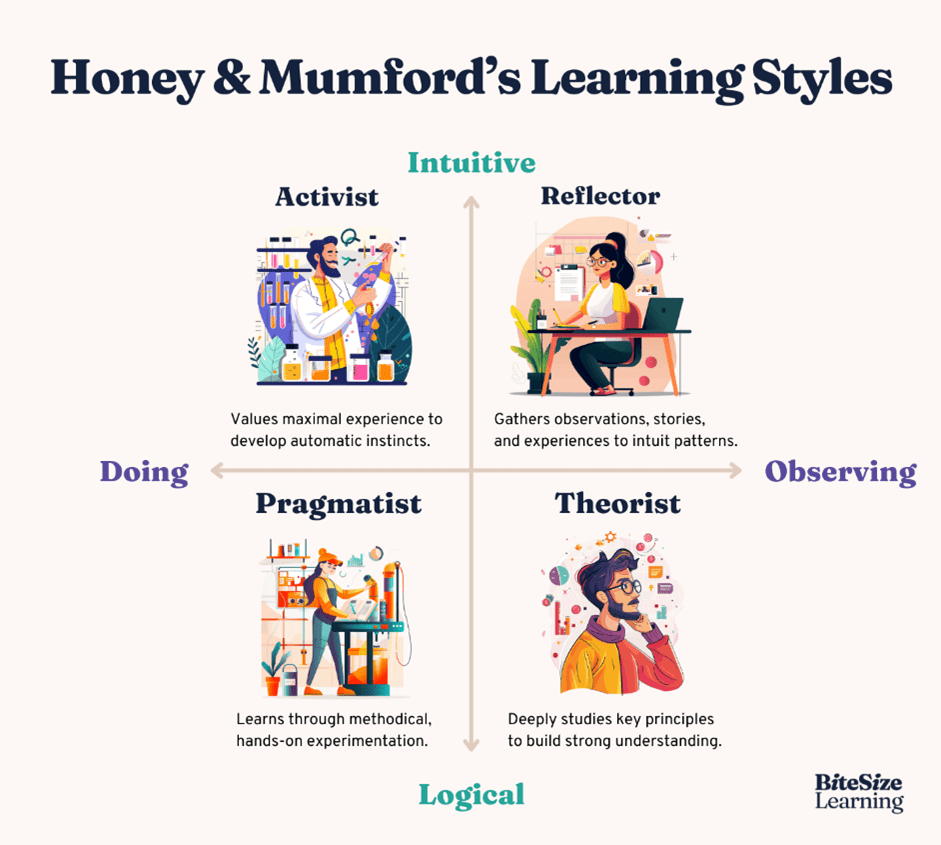- Discover more
- Parent Essentials
- Calendar
- News
- Apply now
- Virtual Tour
- Discover more
- Parent Essentials
- Calendar
- News
- Apply now
- Virtual Tour

Students and teachers alike are industriously working to revise the final parts of syllabuses and refine their exam technique. For many, this may be the first time they’ve sat official exams, or exams which will hold a weight for many years to come. I remember at my own interview for OIC being asked specifically about the A Level subjects I took and grades, as well as my GCSEs, the interview didn’t just examine my university level qualifications.
I always tell my students when it comes to revision one size doesn’t fit all. Everyone has their own way of learning and revising. Indeed, when I was carrying out my PhD and becoming enthralled in the world of higher education teaching I learnt about different pedagogies and theories. One of them was Honey and Mumford’s (1986) learning styles, now some scholars may argue this is too outdated or simplistic, however, it did resonate with me. It made me appreciate how each learner is different – whether they be a activist, reflector, theorist or pragmatist, maybe even a hybrid mix of a few of these styles. What type of learner do you think you are, based on the diagram within this article, and how do you think this could help you understand your own revision? Thus, lessons and revision needs to be tailored to suit different individuals.
Take a look at my tops tips below.
All in all, there’s not one way to revise but the above are the best tips I can offer. When I revised I had to be doing something – so although strange – I used to walk around with my books reading them, I couldn’t just sit still at a desk doing something, alongside the other ways I said above. The funny thing is when I got to the University of Cambridge, I found someone else who would do the exact same thing as me – she would always walk around on the lawn outside with her books as one method of study.
GOOD LUCK!!
Use free websites with excellent peer reviewed resources – my favourite, which I always recommend to my academic strategy tutees is www.getrevising.co.uk. It’s been around a long time (even when I was sitting my A Levels!). It has a free interactive revision timetable you can create to organise yourself as well as excellent revision notes and resources, all for free! Of course, I’m sure several students know of PMT and other more famous websites for sciences and maths revision as well.
Given Geography is a content rich and evaluative subject developing key skills and exam technique is key! I tell my students that practice makes perfect, with them benefiting from additional feedback from myself to improve where requested. To save time I recommend writing introductions and conclusions (where it may not be possible to write a full essay) – as these give a skeleton outline of what you’d expect to see in the answer and gets you to still think about the question. It’s a tip I picked up from one of my supervisors at the University of Cambridge and I’ve used it ever since, particularly useful for those of you in the social sciences and humanities!
My best students are those who are proactive and seek support, and are able to ask questions, this shows me the hard work they are doing outside of classes and also makes my job enjoyable, seeing how they are improving. It also sometimes can teach me a thing or two, or get me to reflect, from the questions asked – teaching and learning is a two way process!
Watch animations, a YouTube video or two (I hear Econplus Dal is a particularly famous individual when it comes to Economics), and you can avoid simply reading a book back to front.
It’s important now to prioritise your exams. However, there’s only marginal returns if you are revising every hour each day. Remember to look after yourself – take breaks – do something you enjoy at least for a couple of hours to unwind.
Most of all don’t panic! If you’ve put the work in the whole year, you’ve done all you can, don’t start questioning yourself, but rather believe in yourself and your potential.